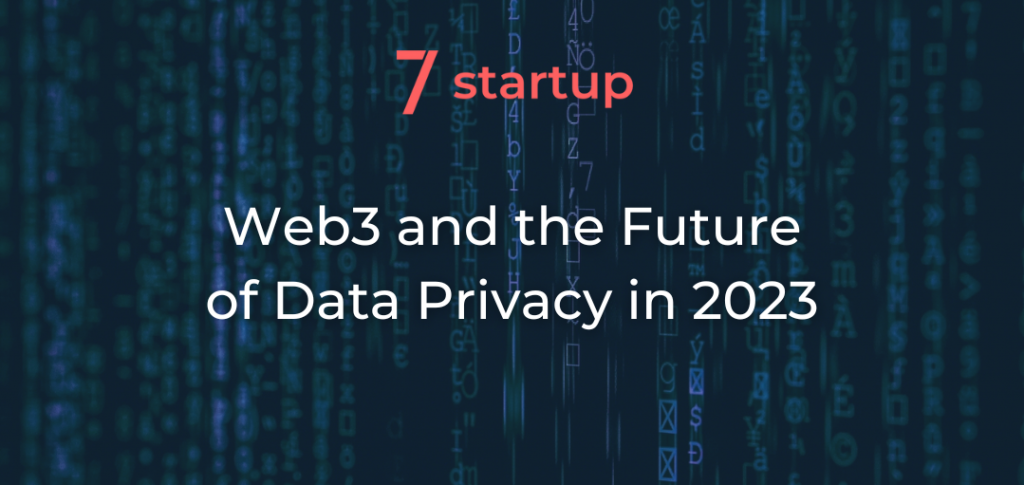The rise of big tech companies, for most of us, has been a two-edged sword. It has offered us valuable tools like iPhones, Spotify, and Gmail, which are incredibly useful but also dangerously addictive. These tools make us give up control over our data privacy, often only realising its value after it’s too late.

The web 2.0 period, which started around 2010 and is still going now, has been the centralisation era. The ascent of Facebook (now Meta), Google, and Microsoft has set up a model where users provide substantial personal data, which these companies use to develop more advanced ad-targeting technologies. The consumers have changed into the goods.
Based on blockchain technology and often regarded as the third evolution of the internet, Web3 holds the potential to alter this trend and empower data creators with control over their personal information. A key element of blockchain is decentralisation, where multiple nodes in a network govern it instead of a single central server. Alongside this decentralisation, blockchain networks use cryptography—a method rooted in mathematics—to protect sensitive data from adversarial actors.
In simple terms, decentralisation makes it challenging for any single entity, whether it’s an individual, a company, or a government, to manage the information flow. This enhances and reinforces your data privacy.
Aside from their decentralised structure, blockchain networks use cryptography—a technique that employs mathematical principles to safeguard sensitive data from malicious entities. Cryptography isn’t new; people have employed various encryption methods for ages to secure private information for themselves or their organisations. Our reliance on digital computers for encryption (and decryption) significantly increased around the mid-20th century. Additionally, applications like WhatsApp and Signal that offer encrypted texting have seen significant growth in popularity recently.
According to Alex Pruden, chief executive officer of Aleo, a firm focused to constructing privacy on blockchains, the rise of those platforms reflects a growing awareness among laypeople that their online activities are frequently being tracked and exploited by giant tech companies: “People are starting to wake up to the fact that in the digital world, all of our interactions are permanent, [and] we have no idea who is watching anything, People who are more tech-forward as they realise the implications, and I think slowly but surely, people will come around to see that we have to have protections, we need to use cryptography to protect our information online.

The Crypto Crossroads
Contrary to popular belief, cryptographic transactions are far from private. Numerous web3 enthusiasts characterise the decentralised financial system, disconnected from the centralised authority of profit-oriented and sometimes irresponsible banks, governments, and corporations, as being “driven” by cryptocurrency.
Services known as crypto mixers can blend the transaction histories of cryptocurrency assets, making them untraceable, even for entities like law enforcement officials. However, they have somewhat lost their credibility. As an example, earlier this year the US banned Tornado Cash, long one of the most well-known of these firms.
Lost in the Metaverse
Privacy worries emerge within the metaverse, a vaguely outlined digital domain where users engage in work, play, shopping, and interaction through avatars. This problem is closely tied to virtual reality (VR), often mistakenly connected to the metaverse due to Meta’s influence. A recent study revealed that malicious individuals might misuse VR to access personal user data such as weight, income, age, and ethnicity. According to the study’s authors, “VR attackers can discreetly ascertain hundreds of personal data traits from users of popular metaverse applications like VRChat who appear to be anonymous.”
Despite all its promises in that regard, Web3 still has a significant journey ahead to realise its dream of safeguarding data privacy.
Web3 faced PR challenges this year. The “crypto winter” in May and the decline of the major crypto exchange FTX have raised doubts about cryptocurrencies as an alternative to traditional banking. Meta’s internal problems add to this. Despite hesitancy among web3 enthusiasts to associate with Meta, it has become a metaverse symbol. As Meta tackles growth issues, speculation about virtual reality’s metaverse potential is on the rise.
Emphasising Data Privacy
That isn’t to suggest web3 is doomed. The blockchain, like any other important technical invention, will take time to gain general adoption. Currently, certain experts view the challenging phase that web3 is undergoing as potentially beneficial for the sector. Observers see this as an opportunity to pause, distinguish between valuable and less crucial elements, reduce reliance on hype-driven marketing, and concentrate on the genuine value that web3 can offer, particularly in terms of data privacy protection and individual empowerment. If the industry wants to thrive as it should, it must rebuild its entire image based on trust and credibility. Web3’s promise to redefine data privacy is dependent on one priceless resource: freedom of choice.

Amit Khanna, 7startup Founder
Amit has two decades of experience in the industry and an MBA. He supports entrepreneurs with every aspect of their business including concept and product development, investor presentations, and fundraising. Amit & 7startup assist startups in the pre due-diligence process and help connect them to our vast network of investors. Reach out to us today and see if we’re a fit!
Additionally, if you enjoyed this article and want to know what we at 7startup have to offer, check out our Web3 page!




